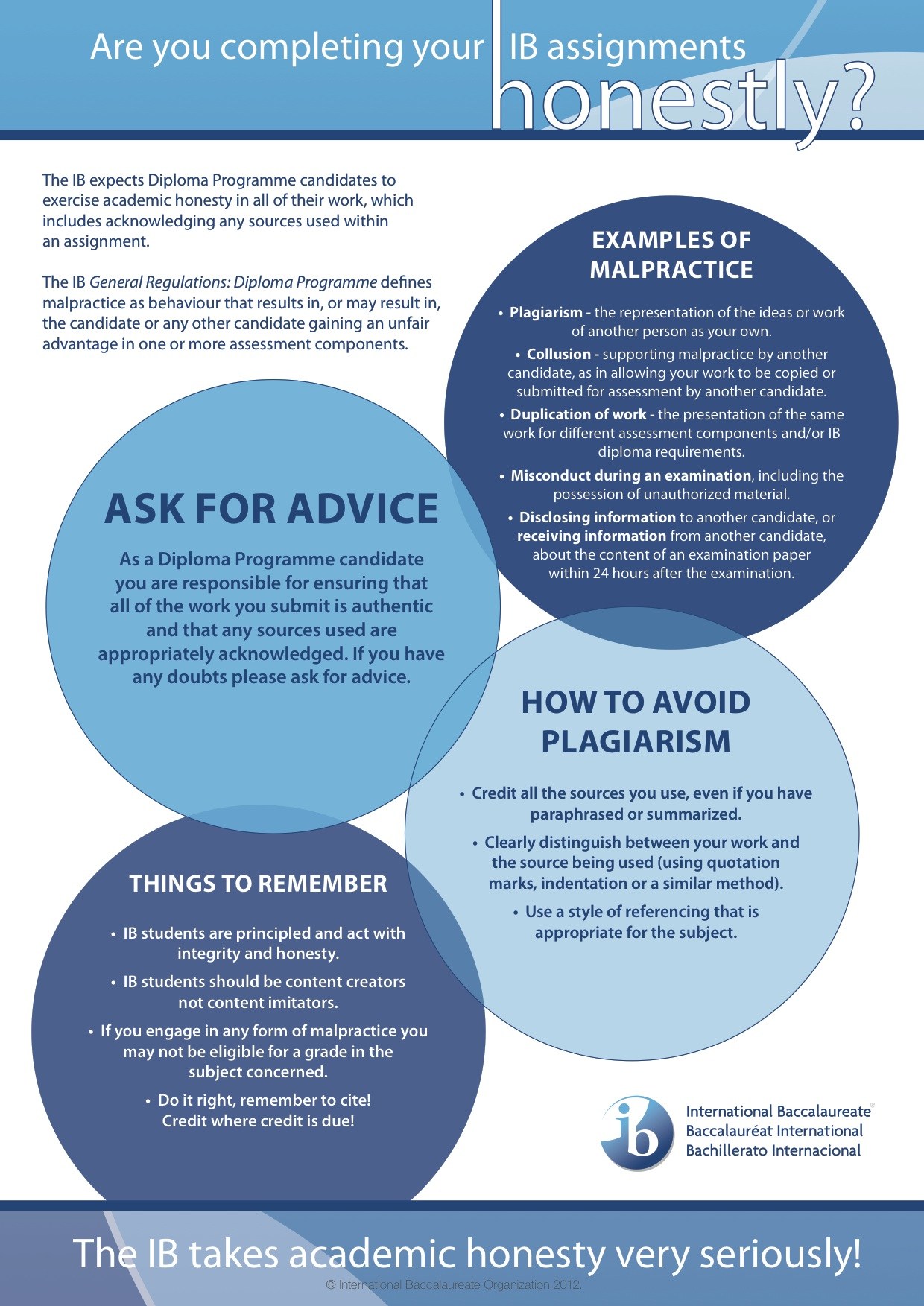IB Academic Honesty Policy
Cottonwood Classical Preparatory School recognizes and follows the academic honesty policy set forth by the IBO for the Diploma Program. Plagiarism is recognized worldwide as a serious academic offense. Ignorance of the working definition of plagiarism is not a valid excuse for lapses and does not prevent penalty from being applied to work submitted as original. With that being said, Cottonwood Classical teachers and staff will continually work with students to provide them with definitions of academic malpractice and plagiarism, but also outline strategies to prevent it. Our goals throughout a student's educational experience at CCPS concerning academic honesty are:
- Middle School (Grades 6-8): Teach the IBO definitions of plagiarism, collusion, and malpractice, and help make aware the expectations of behavior that is responsible and ethical.
- High School (Grades 9-12): Hold students accountable for academic honesty in all work they prepare, while positively supporting the continued learning process concerning academic honesty best practices.
IB Diploma Program students are required to act responsibly and ethically throughout their years, as outlined below, and provided in more detail through the IB Academic Honesty Policy Handbook at the bottom of this page.
Some highlights from the IB Academic Honesty Policy above include:
- Candidates are required to act in a responsible and ethical manner throughout their participation in the Diploma Program and examinations.
- Candidates must avoid malpractice, which is defined by the IBO as any behavior that results in, or may result in, the candidate or any other candidate gaining an unfair advantage in one or more assessment components, including:
- Plagiarism, which is the representation of the ideas or work of another person as the candidate's own.
- Collusion, which is knowingly supporting the malpractice activities of another candidate, as in allowing one's work to be copied or submitted for assessment by another
- Duplication of work, which is the presentation of the same work for different assessment components and/or Diploma Program requirements
- Other misconduct during an IB examination session, including taking unauthorized material into an examination, participating in behavior that disrupts or distracts other candidates, or communicating with another candidate.
In the case of IB Diploma or Course candidates, the consequence of malpractice is an official review by the IBO's final award committee and, if a case of malpractice has been established, no grade will be awarded in the subject(s) concerned. As such, no IB Diploma will be awarded to the candidate.
